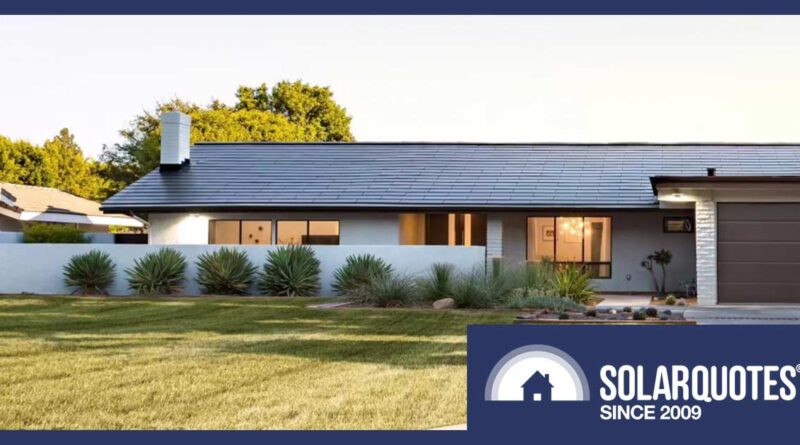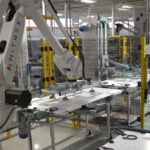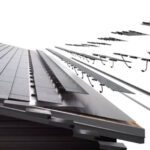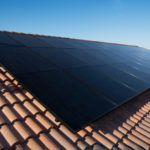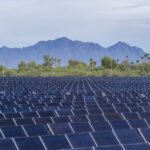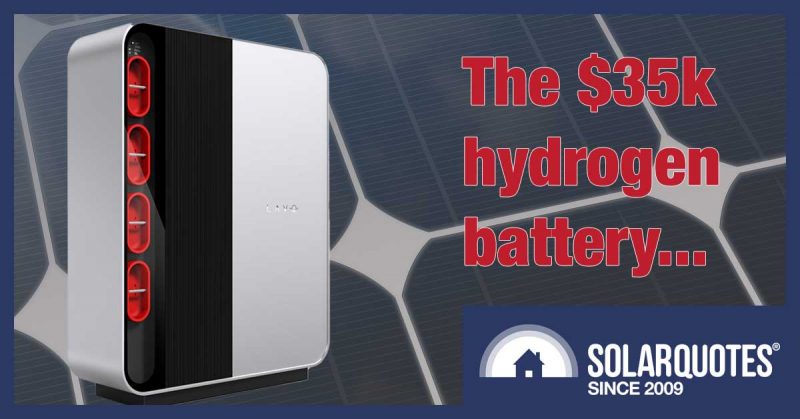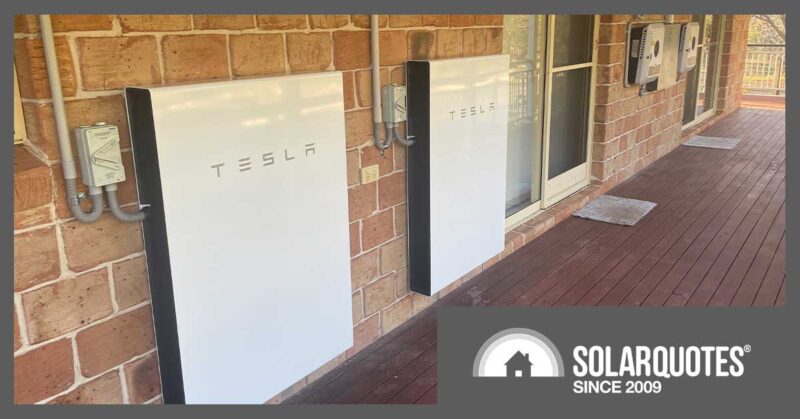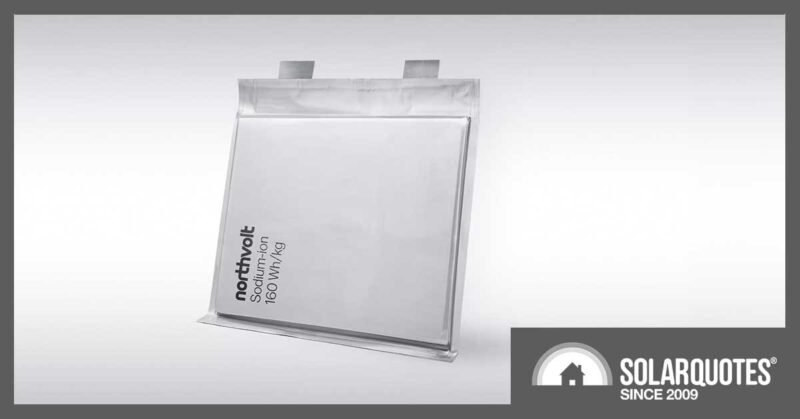Should You Get Solar Tiles Instead Of Solar Panels?
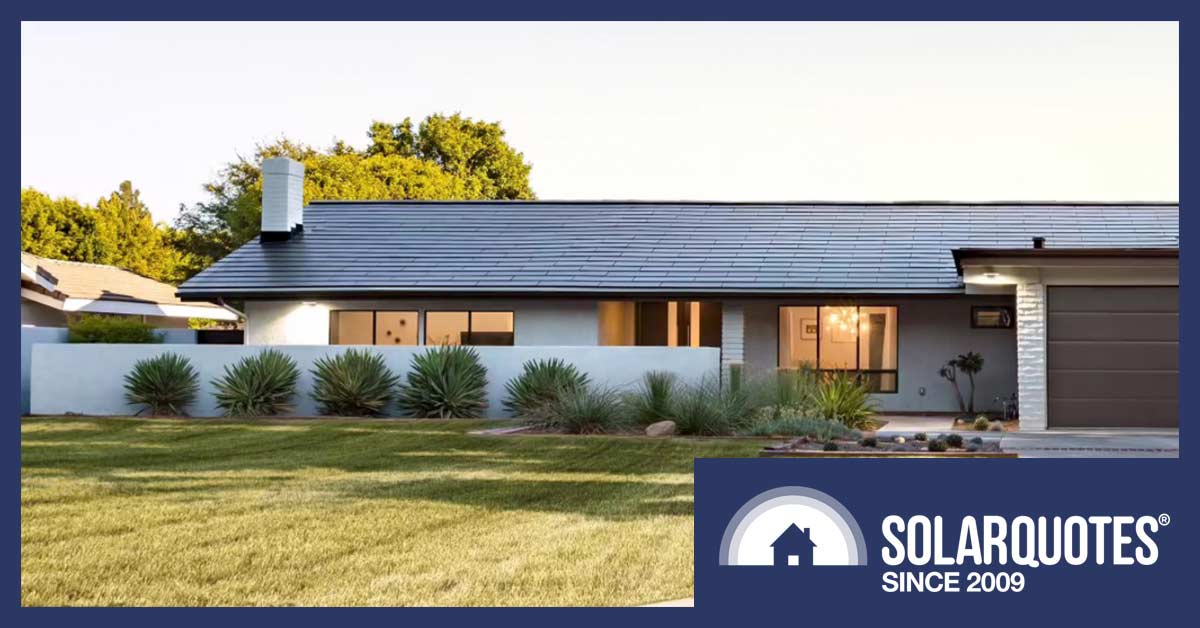
A Tesla Solar Roof. Image: Tesla
I recently attended the 2022 All Energy Australia conference in Melbourne. There was a lot on display, including some Building Integrated PV (BIPV) I hadn’t seen before.
BIPV is building material such as tiles, cladding and windows with solar cells built-in. The most famous example of BIPV is the Tesla Solar Roof, which is unavailable in Australia and pretty hard to get in the USA too.
As solar becomes normal on buildings, more owners are likely to consider BIPV as an alternative to discrete solar panels. So in this post, I’ll explore:
- Whether BIPV is worthwhile, and…
- Why it may take off in the future.
I also included some pictures of BIPV so you can see if it’s something you may be interested in next time you build a home or replace a roof.
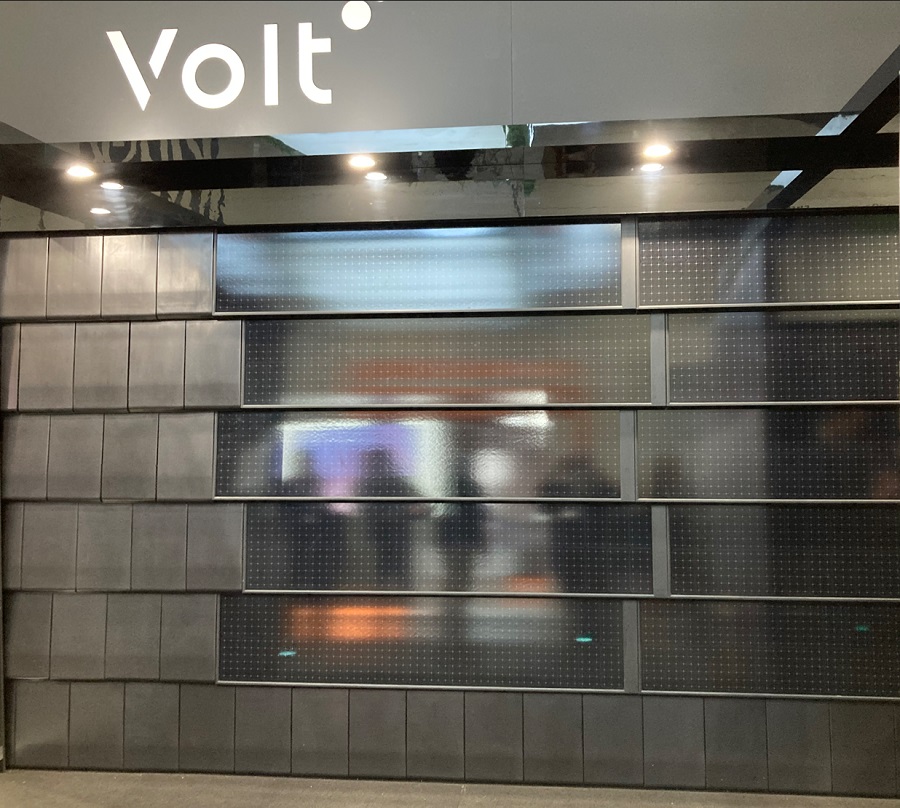
Volt produces these dark solar tiles. To me, they looked darker in real life in this photograph. But maybe the picture’s fine and I just have a dim view of the world.
BIPV Can Be Expensive
BIPV most commonly involves integrating solar cells with roofing material. But it doesn’t have to be roofs. PV solar siding can go on walls, and there are also windows that generate electricity from sunlight. But for most homes, roofs are where the action is. Well installed, solar tiles look great…
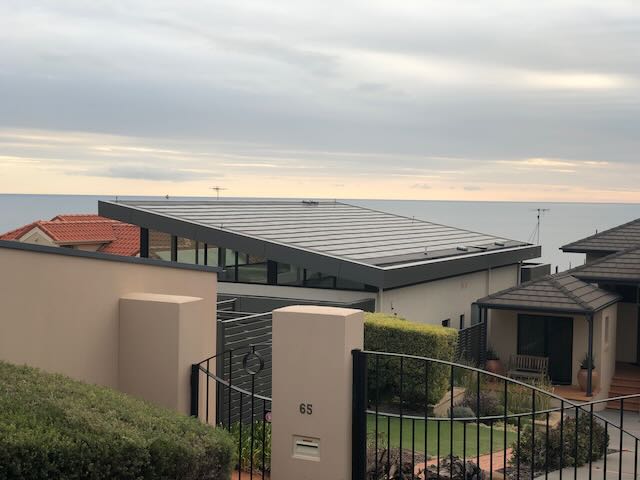
Tractile solar tiles in Marino, SA
But they are very expensive.
At this time, using BIPV is an aesthetic choice. You must be willing to pay extra in return for how they look.
The most cost-effective time to buy a BIPV roof is when you are building a home or replacing a roof. If you replace a perfectly good roof with BIPV, you’ll have to either be really rich or want it really badly.
Some questions you should consider before buying are…
- Will people be able to see it?
- Will people care?
- Will it work as well as a conventional solar panel system?
Will Anyone See It?
I know of installations where people paid extra for all-black solar panels that were then installed where no one could see them. As BIPV can cost much more than the best-looking solar panels, be certain it will make an appreciable difference to your home’s appearance.
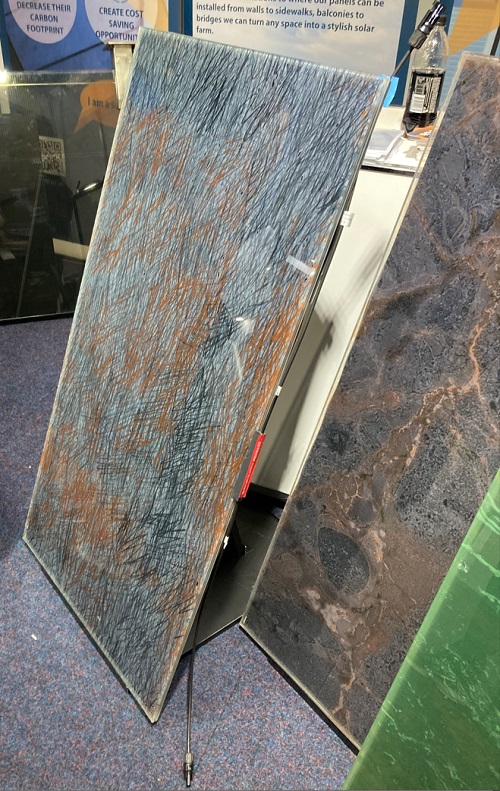
These solar panels look extremely funky. But this level of funkiness reduces efficiency by perhaps 15%. They’re also not BIPV, although they could be used for a patio roof. They’re also not currently available in Australia.
Will Anyone Care?
I find homeowners tend to be a little self-conscious about their roofs. Sure, a nice roof can improve the overall impression your home has on people, but the effect is usually going to be less than the stuff that’s at eye level. Hardly anyone cares whether discrete solar panels or stealthy solar tiles power your roof.
Will BIPV Work As Well As Solar Panels?
A few things to consider before getting a BIPV roof are:
- Could you install a larger system with solar panels?
- What are the warranties, and will you be able to get replacement tiles if required?
- Will it produce as much energy per kilowatt of PV capacity as a conventional system?
- Will they make your home hotter?
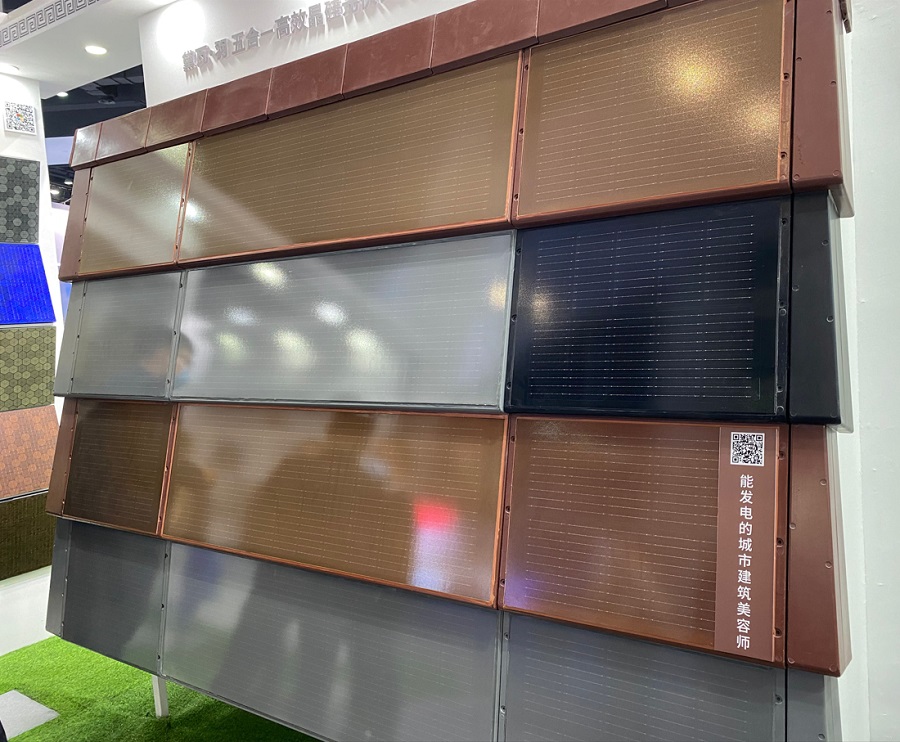
Lucy Xu of Wonergy sent me this picture out of the blue. I have no idea who Lucy is or what Wonergy is, but the name of her company has blown my mind. (Woah… nergy!)
Can You Go Bigger?
You might think if you make your entire roof BIPV it would produce more power than panels bolted on top. In reality, most solar tiles can’t cover 100% of the roof. You may get more kilowatts from your roof by installing high-efficiency solar panels.
Warranties & Replacements
Roofs often have warranties of 25 years. These days, there are many solar panels on the market with both product and performance warranties of 25 years or longer. But while BIPV will often have a warranty of 25 years as roof material, its product warranty as solar PV may not be as long. It could be only 10 years.
This means that after 10+ years, you may end up with a solar roof that still works well as a roof but isn’t doing so well on the electricity generation part. While I would expect solar roofing material to have a PV performance warranty of 25 years or more, making a warranty claim under the performance warranty may be more difficult than the product warranty.
A BIPV manufacturer going out of business can create problems. This is especially true if you need replacement solar tiles. If normal solar panels need replacing after a hailstorm and the manufacturer has gone out of business, it is possible to use another company’s panels. But if no one makes your solar roofing material anymore, you could have a serious problem. You may find keeping some spare tiles on hand a worthwhile precaution.
System Efficiency
BIPV is typically less efficient than high-quality, modern solar panels. If a solar tile is anything other than black or a dark bluish-black, it will have lower efficiency. Making them any other colour will reflect some light and reduce output. The loss is likely to be around 15-20%. BIPV efficiency can also lag behind if the manufacturer doesn’t use the latest solar cell technology. While normal panel manufacturers focus on increasing efficiency, the makers of solar tiles may not have the resources to keep up.
Heat can also be more of a problem for BIPV. Standard solar panels are installed on rails that raise them off the roof. This allows air to circulate underneath and cool them. This can’t happen with solar roof tiles, and so they tend to be slightly hotter under identical conditions. Hotter cell temperatures mean lower efficiency. This may only reduce their output by a couple of percent, but it’s still something to keep in mind.
BIPV Can Make Your Home Hotter
Because they’re raised, conventional solar panels will shade your roof and make your home cooler than it would otherwise be, reducing the need for air conditioning. Because BIPV doesn’t have this effect, it can increase your home’s energy consumption. If the non-solar parts of your roof are dark to blend in with dark PV tiles, the effect can be particularly strong.
BIPV May Be Big In The Future
At the moment, you can expect to pay much more for a BIPV roof than for a standard roof plus a standard solar system. But prices could — and should — come down in the future. Combining solar PV and roofing material can provide several cost advantages:
- BIPV allows roofing material and solar cells to share the same structural strength. As it no longer has to be provided separately by the solar panel, it reduces the total amount of material required and therefore the cost.
- It completely eliminates the need for railing, clamps, and other hardware used to attach solar panels to roofs.
- Because the solar is installed along with the roof instead of separately, it could reduce installation costs. But only if the solar tiles are very easy to install.
Unfortunately, there are also several factors working against BIPV falling in price. These include…
- Conventional solar panels are very standardized. Standardization has not yet occurred with BIPV, and there are many types of systems on the market. Working against standardization is the fact roof construction varies around the world due to climate and tradition.
- Roofers are not solar installers or vice versa. As roofers have little interest in installing solar and solar installers generally aren’t interested in building roofs, this slows the uptake of BIPV.
- There is a principle-agent problem. Builders normally focus on getting construction done and moving on to their next job. They are generally not focused on installing a solar power system that will best meet the needs of whoever moves in. Owner-builders knowledgeable about solar energy may be able to overcome this problem.
- Standard solar panel manufacturers and standard roofing material manufacturers both focus on producing low-cost, reliable products on a massive scale. For the near to medium term, BIPV is likely to miss out on economies of scale.
Because of its obstacles, I suspect it will be years before BIPV takes off. While it will improve and fall in price, conventional solar will do the same, so the competition will be a moving target.
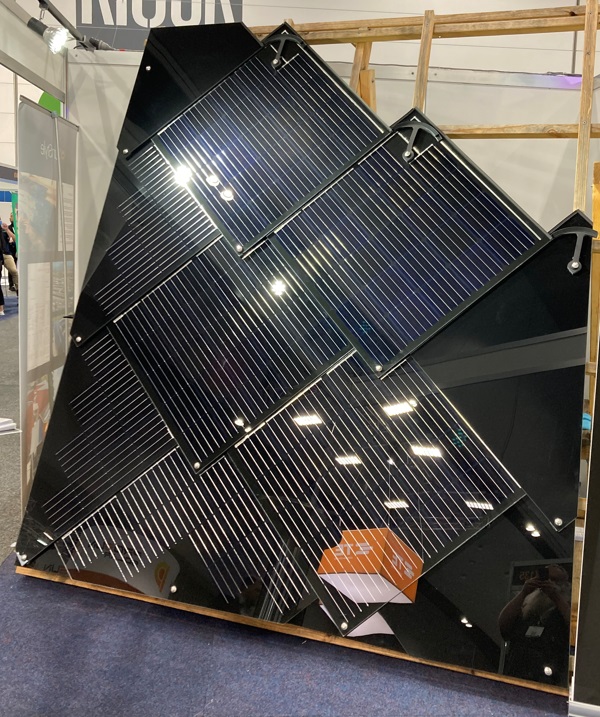
These Dragonscale tiles from SunStyle are my personal favourite, so I’ll write at length about them in the future. (I also included a selfie of myself in this photo — or possibly Santa Claus.)
So, Should You Get Solar Tiles Instead Of Solar Panels?
If you:
- don’t like the look of solar panels
- are replacing a roof or building a new house
- are happy to spend more than conventional panels + new roof
- are happy you can get enough kW with current technology
- and are prepared to carry your own spares
- understand you can’t upgrade or replace your solar system without a new roof
Then go for it.
And send me a picture.
Original Source: https://www.solarquotes.com.au/blog/solar-tiles-vs-panels/

